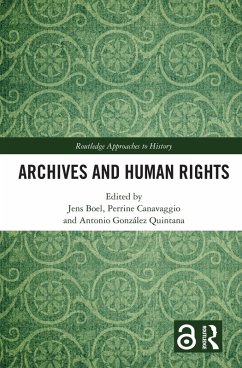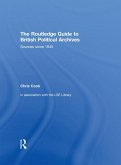Why and how can records serve as evidence of human rights violations, in particular crimes against humanity, and help the fight against impunity? Archives and Human Rights shows the close relationship between archives and human rights and discusses the emergence, at the international level, of the principles of the right to truth, justice and reparation.
Through a historical overview and topical case studies from different regions of the world the book discusses how records can concretely support these principles. The current examples also demonstrate how the perception of the role of the archivist has undergone a metamorphosis in recent decades, towards the idea that archivists can and must play an active role in defending basic human rights, first and foremost by enabling access to documentation on human rights violations.
Confronting painful memories of the past is a way to make the ghosts disappear and begin building a brighter, more serene future. The establishment of international justice mechanisms and the creation of truth commissions are important elements of this process. The healing begins with the acknowledgment that painful chapters are essential parts of history; archives then play a crucial role by providing evidence. This book is both a tool and an inspiration to use archives in defence of human rights.
The Open Access version of this book, available at http://www.taylorfrancis.com/books/e/ISBN, has been made available under a Creative Commons Attribution-Non Commercial-No Derivatives 4.0 license.
Through a historical overview and topical case studies from different regions of the world the book discusses how records can concretely support these principles. The current examples also demonstrate how the perception of the role of the archivist has undergone a metamorphosis in recent decades, towards the idea that archivists can and must play an active role in defending basic human rights, first and foremost by enabling access to documentation on human rights violations.
Confronting painful memories of the past is a way to make the ghosts disappear and begin building a brighter, more serene future. The establishment of international justice mechanisms and the creation of truth commissions are important elements of this process. The healing begins with the acknowledgment that painful chapters are essential parts of history; archives then play a crucial role by providing evidence. This book is both a tool and an inspiration to use archives in defence of human rights.
The Open Access version of this book, available at http://www.taylorfrancis.com/books/e/ISBN, has been made available under a Creative Commons Attribution-Non Commercial-No Derivatives 4.0 license.
Dieser Download kann aus rechtlichen Gründen nur mit Rechnungsadresse in A, B, BG, CY, CZ, D, DK, EW, E, FIN, F, GR, HR, H, IRL, I, LT, L, LR, M, NL, PL, P, R, S, SLO, SK ausgeliefert werden.









